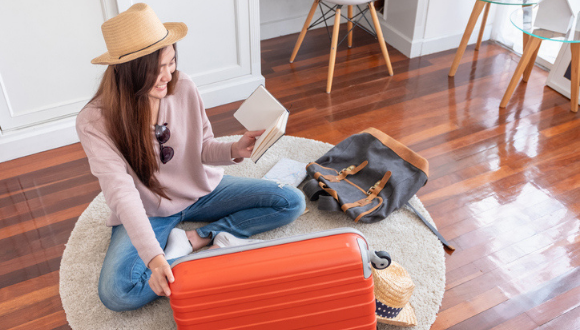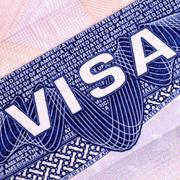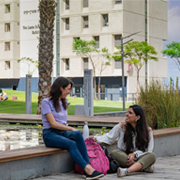Pre-Departure Checklist
Pre-Departure Checklist
Before leaving for Israel, please make sure that you have completed the following:
- Obtained a valid passport
- Received credit pre-approval from your home university (exchange/short-term/study abroad students)
- Made travel arrangements
- Obtained a visa
- Read the TAU International Mobile Phone Policy found in your Pre-Departure Handbook (and made plans accordingly)
- Planned your finances for your time in Israel
Packing Essentials
The following is a list of recommended items for your time in Israel. For additional information, consult your Pre-Departure Handbook.
- T-shirts
- Athletic shoes
- Shorts
- Sweatshirts/sweaters
- Jeans/cotton pants
- Swimsuit
- Medium-weight jacket
- Light raincoat for spring months (January-March)
- Small travel-size umbrella (January-March)
- Shirts/blouses (some with long sleeves for visiting religious and/or historical sites)
- Pajamas
- Sturdy walking shoes
- Cotton socks and/or slippers (floors are not carpeted)
- Sandals
- Personal items/toiletries (many toiletries and cosmetics are much more expensive in Israel, so bring your favorites from home if possible)
- Backpack (1-3 day pack)
- Sunglasses
- Warm waterproof boots
- Sun hat
- Water bottle
- A lightweight shawl or scarf for covering shoulders if needed (some religious and/or historical sites require this)
Attire in Israel is fairly casual, including on campus. Most students attend classes and campus events in nothing more formal than jeans and T-shirts. During the hot summer months (usually up to 90F/32C), the usual casual style becomes even more relaxed. In the winter months (usually not lower than 45F/7C), warm clothing is necessary, as many buildings are not centrally heated. In addition, rainy days can occur often January-March so bring a light raincoat and waterproof footwear if planning to be in Israel during this time.
Medication
Most standard over-the-counter medication is available at pharmacies in Israel. If you take prescription medication, you should bring enough to last for your entire time in Israel. It is also recommended that you bring a typed prescription referring to the generic name of the medication in case you need to have it refilled; as medications have different brand names throughout the world, it is important that the generic name be provided for reference. In the event that you are sent an additional supply of medication by mail, you will be required to present a prescription to the Israel Customs Office before the medication can be released to you. However, due to the difficulties of shipping and customs in Israel, you should try to bring an advance supply of medication with you if at all possible so that you do not need to depend on the Israeli shipping and customs processes.
Organic and Natural Products (Cosmetics, Toiletries, Cleaning Supplies)
There are several chain stores, as well as independently owned shops, in Israel selling natural and/or organic products. These products are generally quite expensive but can be found nevertheless. In case of allergies requiring you to use these sorts of products, we recommend bringing an initial supply from home if possible to give yourself some time to find an equivalent here in Israel.
Bedding and Linens
Blankets, sheets, pillows, and towels are not supplied by the university. As linens are relatively expensive in Israel, it is recommended that you bring your own from home, or consider renting them from a company like 1 simhub. The following quantities are usually sufficient:
- 1 blanket
- 1-2 sets of sheets
- 2 pillowcases
- 1 pillow
- 3-4 towels
Please note that Israeli twin-size beds are slightly longer and narrower than standard American twin beds. Also known as a "single" bed. The mattress size is 2 meter long, 1 meter wide and 20 cm. high (200X100X20).
Kitchen and Household Goods
Kitchen utensils and household goods, such as detergent, light bulbs and toilet paper, are not supplied by the university. All are readily available at shopping centers near campus and are relatively inexpensive. Suitemates sharing kitchen facilities often pool resources and purchase these supplies as a group.
Electrical Appliances
Electrical appliances brought from other countries should be kept to an absolute minimum. Because of Israeli customs restrictions and the drain on dormitory electrical capacity, a limit on electrical appliances is advisable.
The electrical current in Israel is 220 volts, 50 cycles. You may be able to bring a transformer for certain appliances like a hairdryer. Some appliances cannot be converted.
Traveling/Camping Equipment
Many students travel extensively throughout Israel. For university-sponsored trips, students need a backpack large enough to carry one or two changes of clothes, sturdy walking shoes, and a sleeping bag (most youth hostels provide bedding but some do not). Your sleeping bag can also double as an extra blanket in your dorm room during the colder months. Many students enjoy camping and hiking, and the TAU International Student Life Team can help suggest trips. If you are interested in doing this type of traveling, you may want to bring a larger backpack, heavy-duty hiking boots, a flashlight, and a cooking supply kit.
Baggage Information
Those traveling on the group flight can see El Al’s website for current baggage regulations.
If you are traveling on the group flight and have any questions about baggage regulations, please contact the travel agent.
Students traveling with another airline should check with that airline for baggage regulations.
Shipping Luggage
We don't recommend shipping items to yourself for a number of reasons:
- Incoming goods may be taxed if they are shipped. This is the case even if they are your own personal items and even if they are used.
- There is no way to know exactly how long your shipment will take to arrive.
- Shipments arrive at the Port of Haifa, which is more than an hour away from Tel Aviv. You will have to get to Haifa, take the shipment through customs, declaring all items, and then get your luggage from Haifa to TAU.
- Former participants have said that if you have an extra piece of luggage, you are bringing too much.
- If you must bring extra luggage, we recommend simply paying the airline’s fee for an extra bag and bringing it to Israel with you rather than trying to ship anything here. It will be easier and most likely cheaper in the end.




